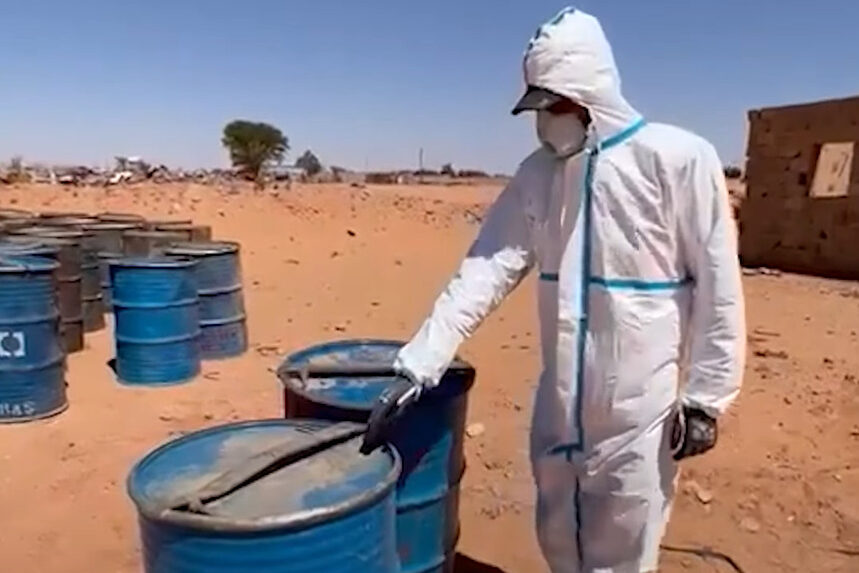The International Atomic Energy Agency (IAEA) Director General’s announcement on March 14 about the loss in Libya of 2.5 tons of uranium ore concentrate from a site where it was stored under the agreement between the agency and former Libyan President Muammar Gaddafi brought Libya back to news headlines.
The 2.5 tons of uranium which went missing could not be made into a nuclear weapon in its current state, but could be used as the raw material for a nuclear weapons programme or even to make a dirty bomb.
The IAEA, which is responsible for the safe disposal of the traces of the Libyan nuclear program under an agreement reached in 2003, sent its inspectors to the storage site a year after it was scheduled to be visited.
The Libyan National Army (LNA), which is based in the eastern city of Benghazi, announced the recovery of the missing uranium on March 16. The head of the army’s media unit, Khaled Mahjoub, said that the ten drums of ore were found near the border with Chad. The IAEA said it was “actively working to verify” the announcement.
Mahjoub added that the uranium barrels may have been stolen by a Chadian militia that thought they contained weapons or ammunition, then left them out in the desert after realizing their real content.
The LNA is one of the two main political polls controlling the chaos in Libya, with the other being the Tripoli-based Government of National Unity (GNU).
Just three years ago, the LNA was allied to Egypt, the United Arab Emirates and Russia while the forces in Tripoli, back then represented by the Government of National Accord, were allied to Turkey and Qatar. Now however, the political alliances of both the LNA and the GNU are more blurry than before mainly because backers have lost interest.
The odd case of the missing uranium raises a question about the current situation in Libya and its impact on the entire Mediterranean region.
Everything that semblances order in Libya disappeared back in 2011, after the overthrow of the Gaddafi regime in a NATO-backed rebellion. Since then, the civil war has been raging in oil-rich Libya, leaving the country a shadow of its past on all levels.
Loads of weapons and ammunition were left scattered around Libyan cities and in the country’s vast deserts after the collapse of the regime. As a result, the once-stable country became a hub for arms trafficking.
Adds to the problem the impossibility of securing borders in any direction, especially in the direction of Africa. It was from Niger that Gaddafi got his uranium, some of which disappeared so “unexpectedly” from the test site, which on paper was controlled by the IAEA, before reappearing near the border with Chad.
Today, Libya is a man-made failed state. However, not a completely lost one. Given that Russia and Turkey maintain much influence in Libya today, via both the LNA and GNU, they could possibly lead the work to rehabilitate the country. The neighbors of Libya, mainly Egypt and Algeria, as well as other countries which were previously heavily involved, like the UAE, could also aid the efforts to recreate Libyan statehood. Only such a move would ensure security and stability in the Mediterranean for the long term.






